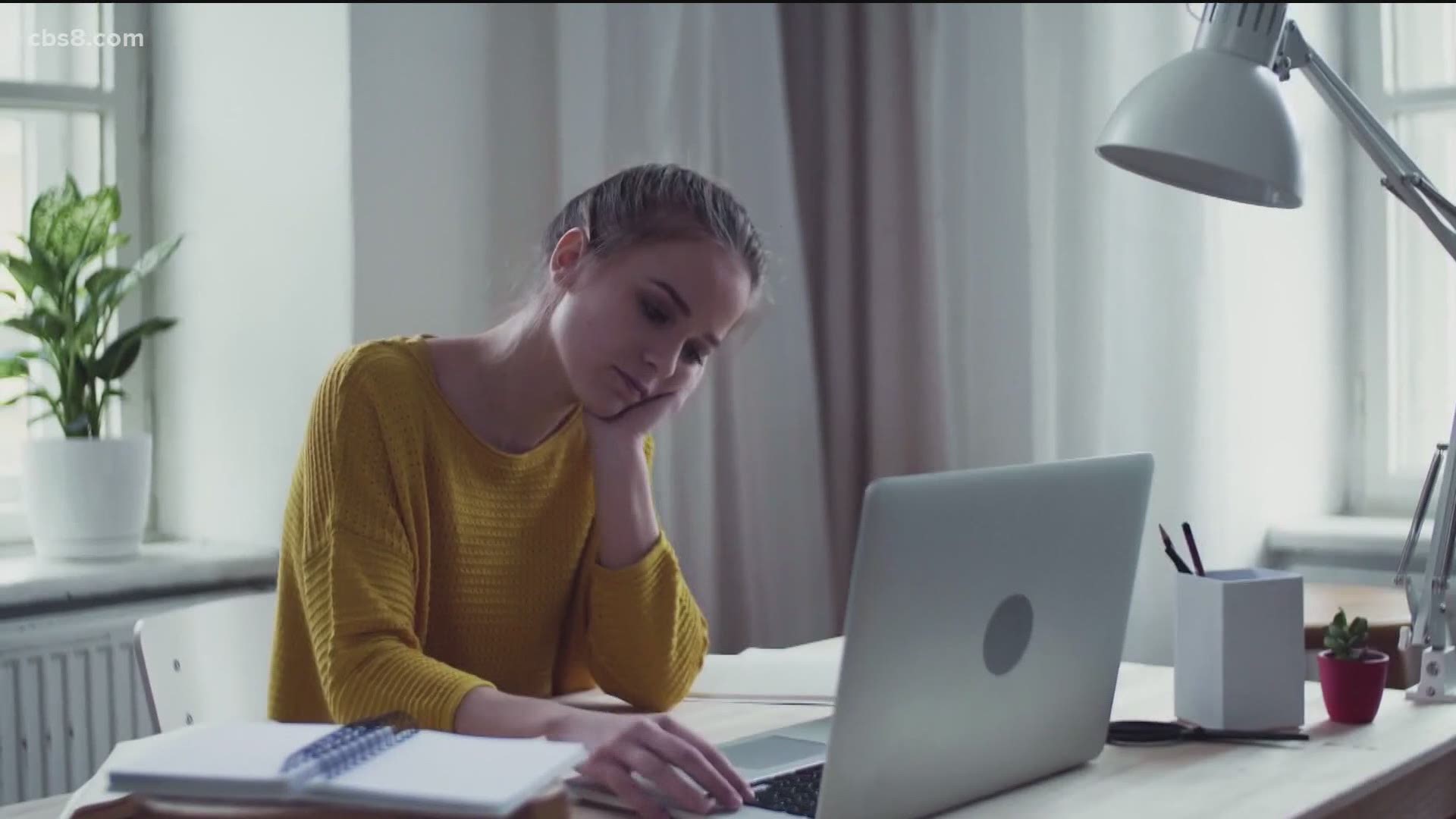SAN DIEGO — Many of us are working from home and staying inside more than ever, but this increased isolation may only be increasing our chances of depression.
“This pandemic has really amplified that, and it’s turned our lives upside down,” said psychiatrist Dr. Michael Lardon.
Across the globe, more people are spending more time alone, online and away from our normal routine due to the coronavirus pandemic.
“Human beings are social creatures, so we need that interaction,” Lardon said.
Dr. Lardon said one of the core symptoms of depression is isolation, and it’s far worse for the elderly.
“We’re keeping older folks with dementia in their rooms, and it’s disorienting enough to be in a facility,” he said.
What about lack of our favorite things and not seeing professional sports on each day?
“We’re forced into a situation where we don’t have the opportunity to enjoy ourselves as much,” Lardon said.
Many parents and married couples are feeling the pressure being cooped up in the house with loved ones for a long time as working from home and online school have become a way of life.
“So many of us wished that we could relax and work from home, now we’re working from home, and we’re asking, 'when can we get out of here?'” Lardon said.
High school graduations and birthdays are no longer the same with virtual celebrations. Even doctors appointments are much different.
“I miss seeing my patients live, everyone’s on Zoom. I feel like I’m a salesperson making calls all day,” Dr. Lardon said.
But Dr. Lardon said this time, although for some it’s breeding crazy COVID dreams, doesn’t have to be an endless nightmare. There is light at the end of the pandemic tunnel, so it’s key to not focus heavily on COVID-19 case counts and the death toll, and remember the good things.
“It’s taught us how much we miss our friends, we miss giving a hug, and all the things we took for granted,” Lardon said.

